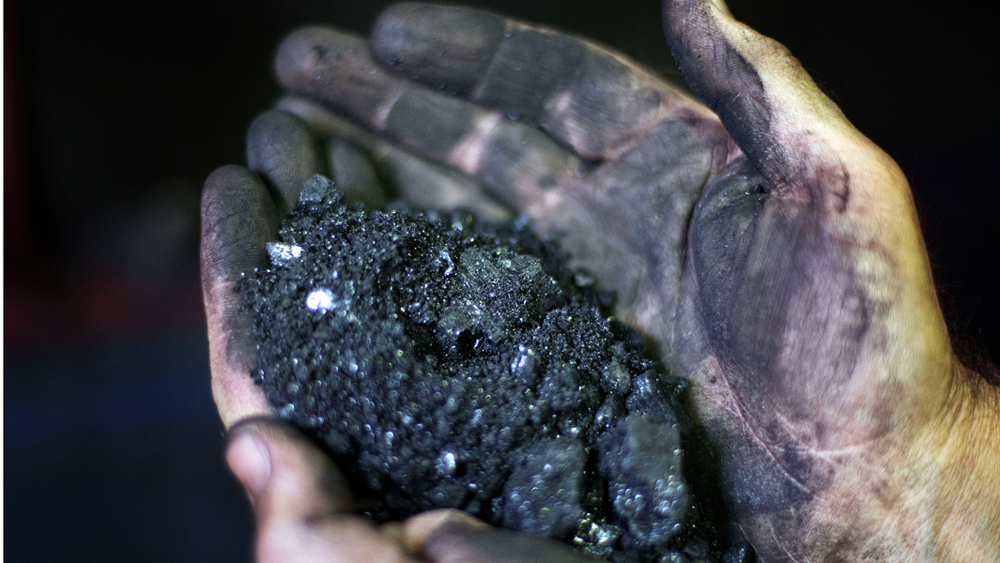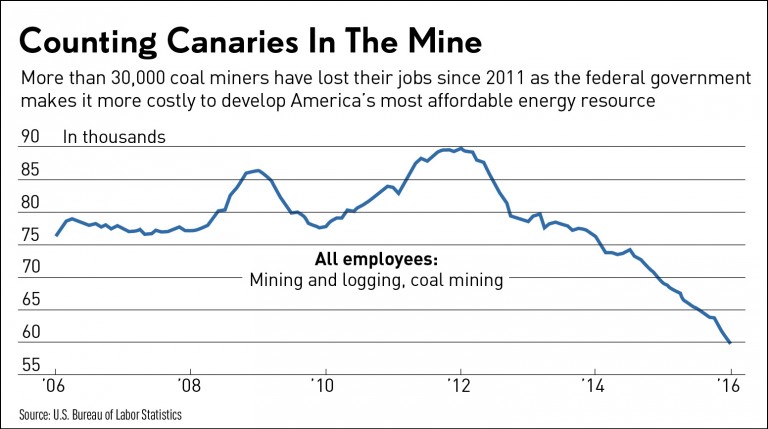|
Mark Perry: Keeping Coal In The Ground Buries Affordable Energy

West Virgina Coal
For long-suffering communities that depend on coal, a recent Supreme Court ruling temporarily blocking greenhouse gas reductions was seen as a rare victory. But coal country residents say the reprieve may only be temporary as utilities turn away from coal generation and production continues to slide. (AP)
For months, legal and energy experts have said the Clean Power Plan is an overreach of regulatory authority, a threat to grid reliability and exorbitantly expensive. The U.S. Supreme Court just stopped the plan cold.
The court has issued a stay in the implementation of the U.S. Environmental Protection Agency’s Clean Power Plan, which aims to reduce carbon emissions from the nation’s power plants 32% by 2030.
Twenty-seven states brought the legal challenge forward. They correctly argued that EPA has no authority under the Clean Air Act to issue such a sweeping mandate to reshape the nation’s electric sector.
The court’s ruling, and perhaps the eventual rejection of the plan, is an important victory for consumers and the right of states to manage their own energy systems. However, this victory aside, the Clean Power Plan is just one piece of the Obama administration’s larger anti-fossil fuel campaign that will raise energy costs.
Call it a “keep it in the ground” policy. This extreme stance was the brainchild of the environmental fringe and existed only on the periphery of political discussion just a few years ago. Now it’s the very foundation of the Obama administration’s regulatory and energy policies.
The Department of the Interior’s Stream Protection Rule and the newly announced moratorium on all new coal leases on federal lands are cases in point.

ISS2cht021916
The Stream Protection Rule is the penultimate example of a solution in search of a problem. Though streams are already well-protected, the new rule makes changes and additions to 475 existing regulations, taking regulatory authority away from the states and consolidating it inside the Department of the Interior.
The goal is clear: cut states out and make it more costly to mine American coal.
The job losses from such an unnecessary rule could be horrific. More than 30,000 coal miners have already lost their jobs since 2011. Should the Stream Protection Rule become law, another 40,000 mining jobs will vanish. The total could be 280,000 jobs lost when indirect employment is included.
It’s not just jobs that are threatened by the rule. Some two-thirds of the nation’s proven coal reserves – a major source of affordable electricity – would become economically untenable. The cost of complying with the rule would be so great these reserves might as well not exist.
If there’s any doubt about the Obama administration’s intentions, the new moratorium on coal leases on federal lands puts them to bed. The moratorium has been sold under the guise of reviewing the federal coal leasing process. This is not a review, it’s the beginning of the end of all fossil fuel production on federal lands if the political left gets its way.
Just a week ago, Hillary Clinton confirmed as much at a rally. “Yeah, that’s a done deal . . .,” she said. “That’s where the president is moving. No future extraction. I agree with that.”
Some 40% of U.S. coal comes from federal lands, nearly all in western states. Though significant coal reserves are already leased, the eventual loss of affordable energy from coal production and the revenue coal generates would be crippling to dozens of states, from West Virginia to Wyoming.
Coal is our nation’s most abundant and affordable energy source to produce electric power. Policy initiatives like the Clean Power Plan, the Stream Protection Rule and the moratorium on coal leases are a recipe for disaster. A “keep it in the ground” energy policy is no energy policy at all.
Perry is a scholar at the American Enterprise Institute and professor of finance and business economics at the School of Management, University of Michigan-Flint.
|


